Updates
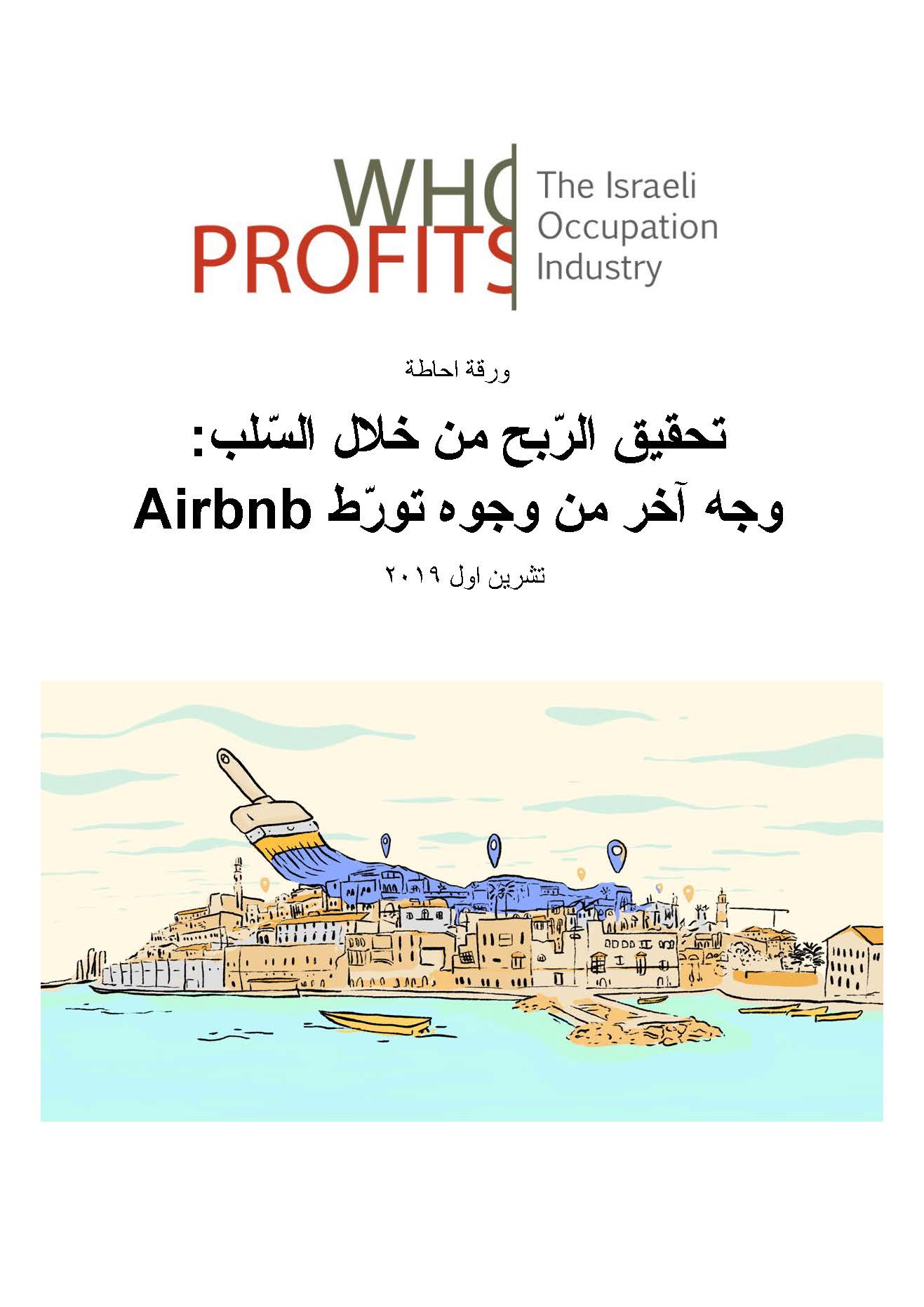
Airbnbتحقيق الرّبح من خلال السّلب: وجه آخر من وجوه تورّط
نحاول في ورقة الاحاطة هذه ان نسلط الضوء على تورط الشركة في نهب ممتلكات اللاجئين الفلسطينيين في اراضي 1948 (داخل "الخط الاخضر"). كما ونستعرض بشكل مفصل قرار الشركة بالاستمرار بابقاء المرافق المقامة في مستوطنات الضفة الغربية في منصتها الالكترونية.
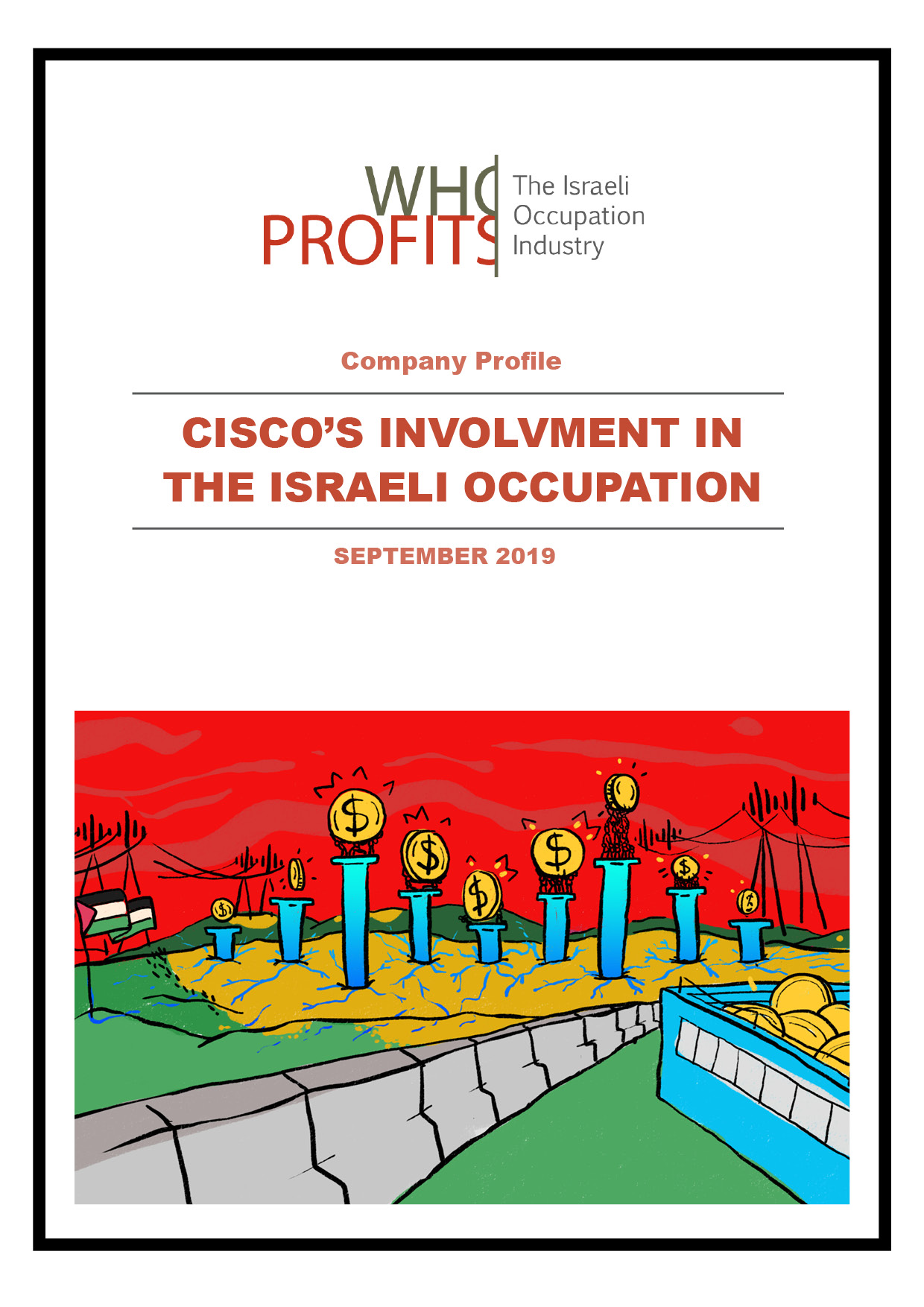
Cisco's Involvement in the Israeli Occupation
Through its fully owned Israeli subsidiary, Cisco – Israel, Cisco Systems has a diverse portfolio of complicity with Israel's decades' long occupation. Cisco is involved in setting up technological hubs on occupied land, expanding visual surveillance in Jerusalem and delivering IT services to the Israeli military. Furthermore, it contributes to the structural dependency of the Palestinian economy to that of Israel through a process of outsourcing managed by its Israeli subsidiary.
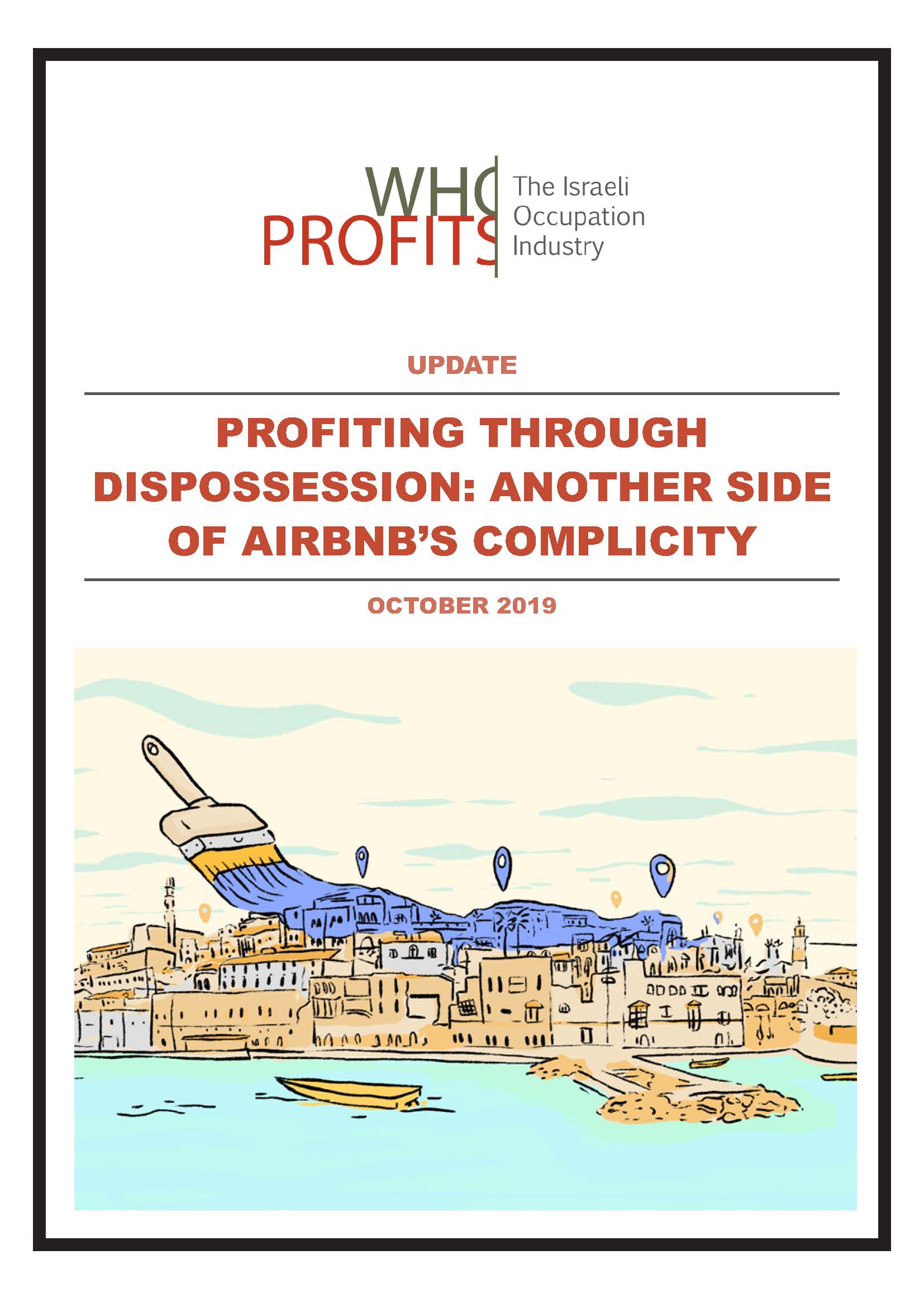
Profiting through Dispossession: Another Side of Airbnb's Complicity
The update highlights Airbnb's overlooked complicity in the plunder of Palestinian refugee properties in 1948 territories (inside the "Green Line"). Additionally, it looks in detail at the company's decision to continue the listings of settlement properties.
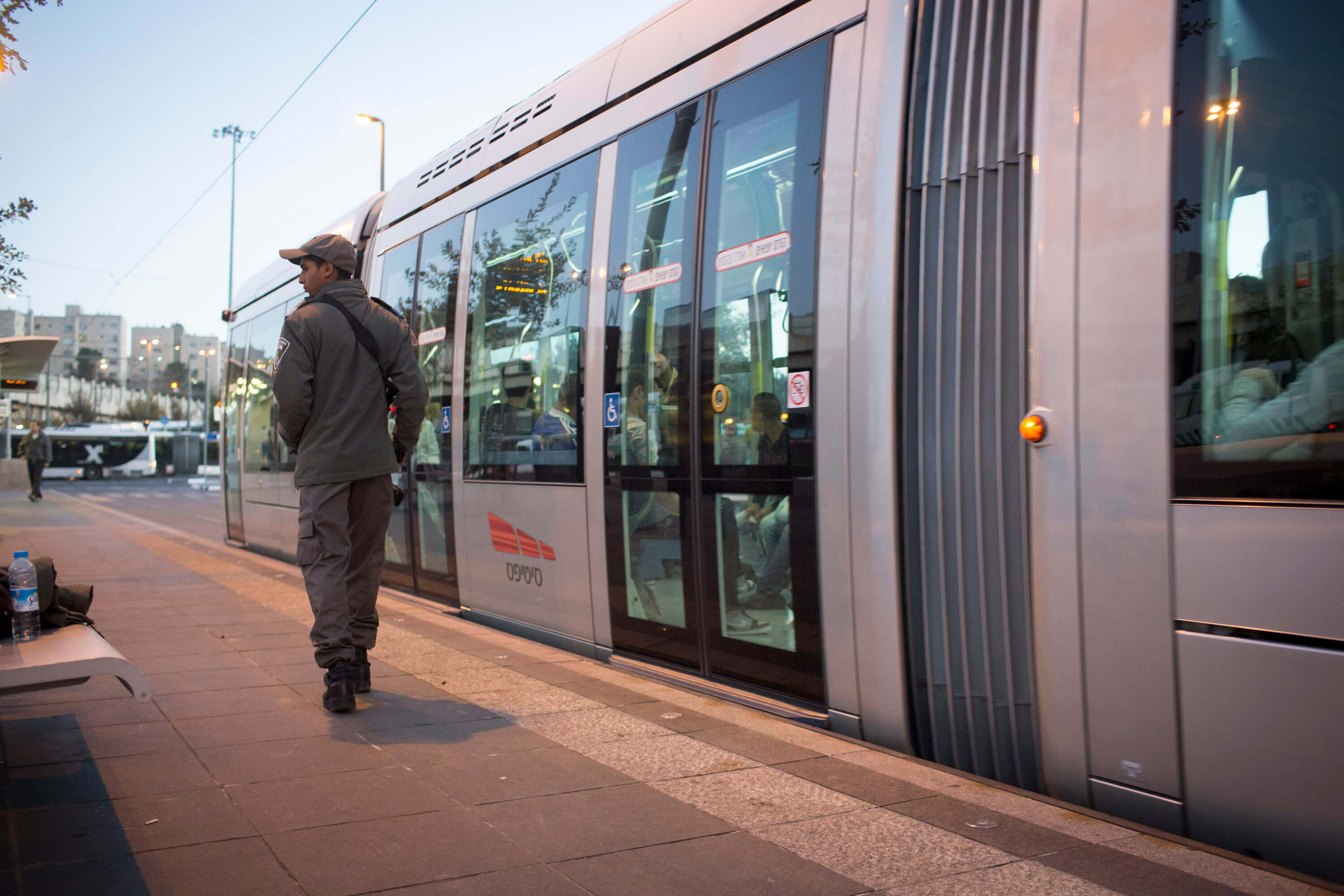
Spanish multinational CAF and Israeli Shapir win tender to expand the Jerusalem light rail
This update highlights the recent developments in the expansion of the Jerusalem Light Rail system- the extension of the existant Red Line of the train and the construction and maintainance of the new Green Line. The update exposes the instrumental involvement of the Spanish multinational company Caf- construccionces y Auxiliar de Ferrocarriles and the Israeli public company Shapir Engineering and Industry.
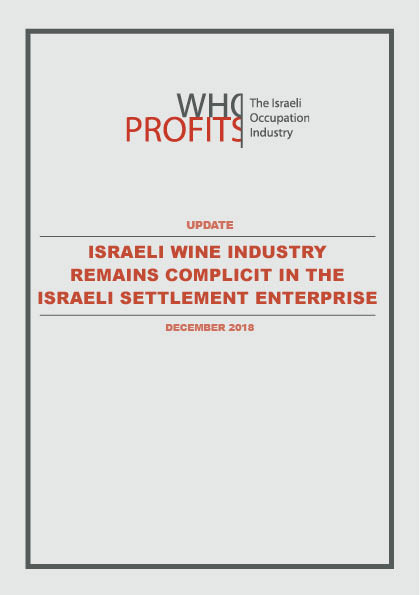
Israeli Wine Industry Remains Complicit in the Israeli Settlement Enterprise
The Israeli wine industry remains deeply complicit in the occupation of Palestinian and Syrian land. Dozens of wineries are based in and around Israeli settlements in the West Bank, East Jerusalem and the Syrian Golan. Many wineries located within the Green Line, including some of the largest commercial wineries in the Israeli market, use grapes originating from occupied land in their wines. This update highlights recent developments in the Israeli wine sector, including the expansion of wine tourism and foreign export markets. All corporate profiles of complicit wineries have been updated.
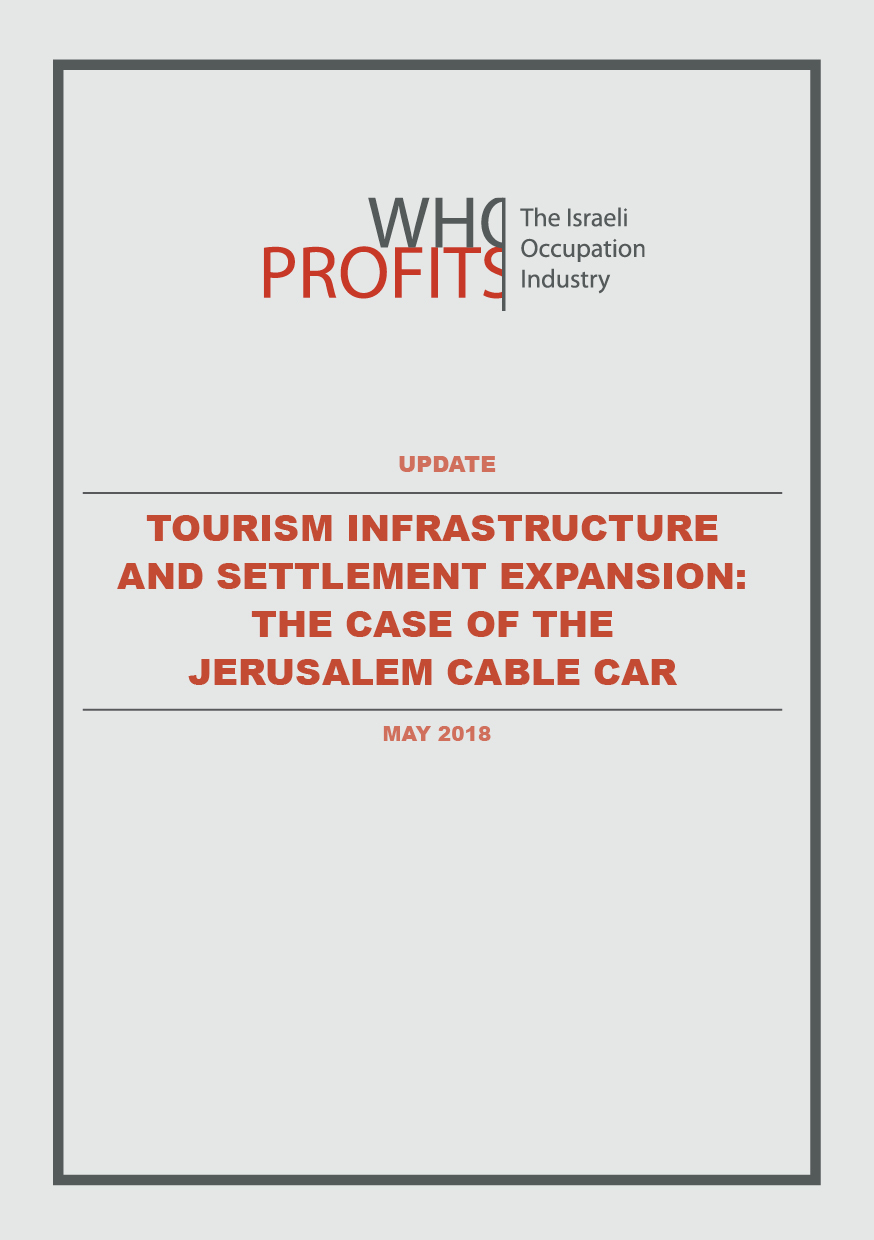
Tourism Infrastructure and Settlement Expansion
In this update, Who Profits provides an overview of the Jerusalem cable car project, highlighting in particular the role of the tourism sector in facilitating Israeli colonial expansion and the involvement of one French corporation, CNA -Cable Neige Amenagement, in the project.

Dexia Group Sells Its Shares in Dexia Israel
On 18 March 2018, Dexia announced the sale of its 58.9% stake in Dexia Israel Bank, an Israeli bank that gives loans and other financial services to municipalities of Israeli settlements in the occupied Palestinian territory.
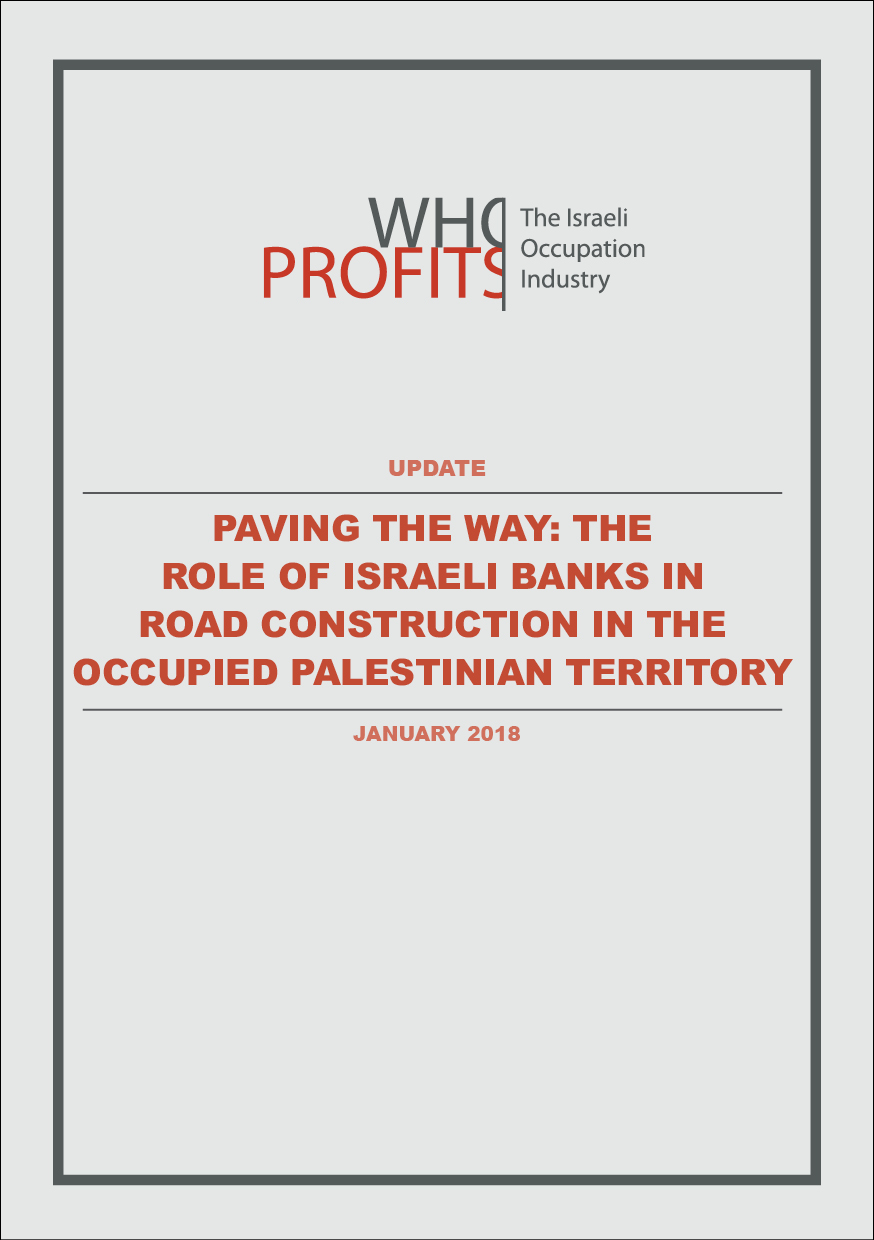
Paving the Way
Road infrastructure projects, like all Israeli construction projects in the occupied Palestinian territory, rely on the financial support of the Israeli Banks. In this update, Who Profits examines a few case studies of infrastructure projects financed by Israeli banks in the occupied West Bank and East Jerusalem.



